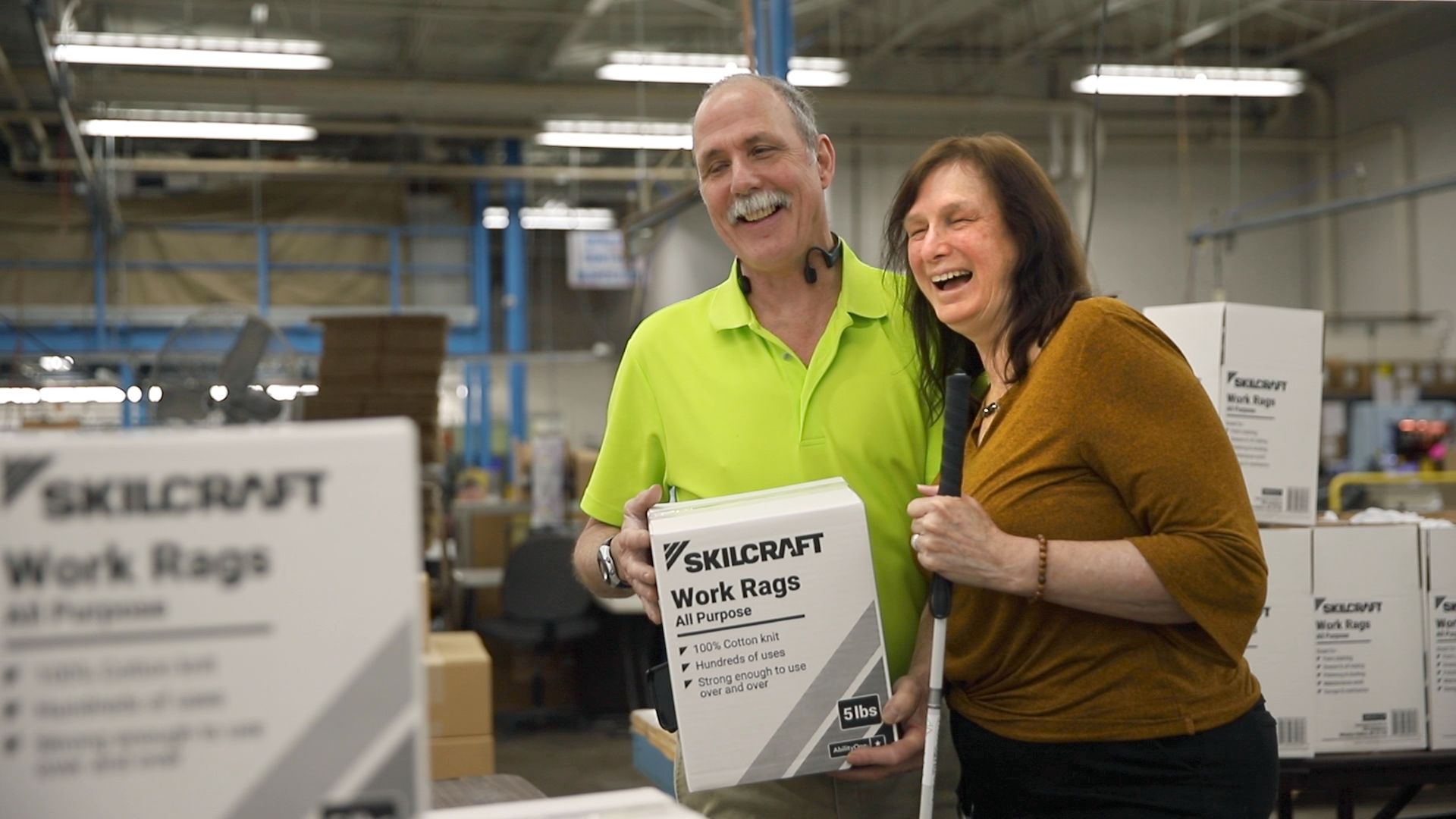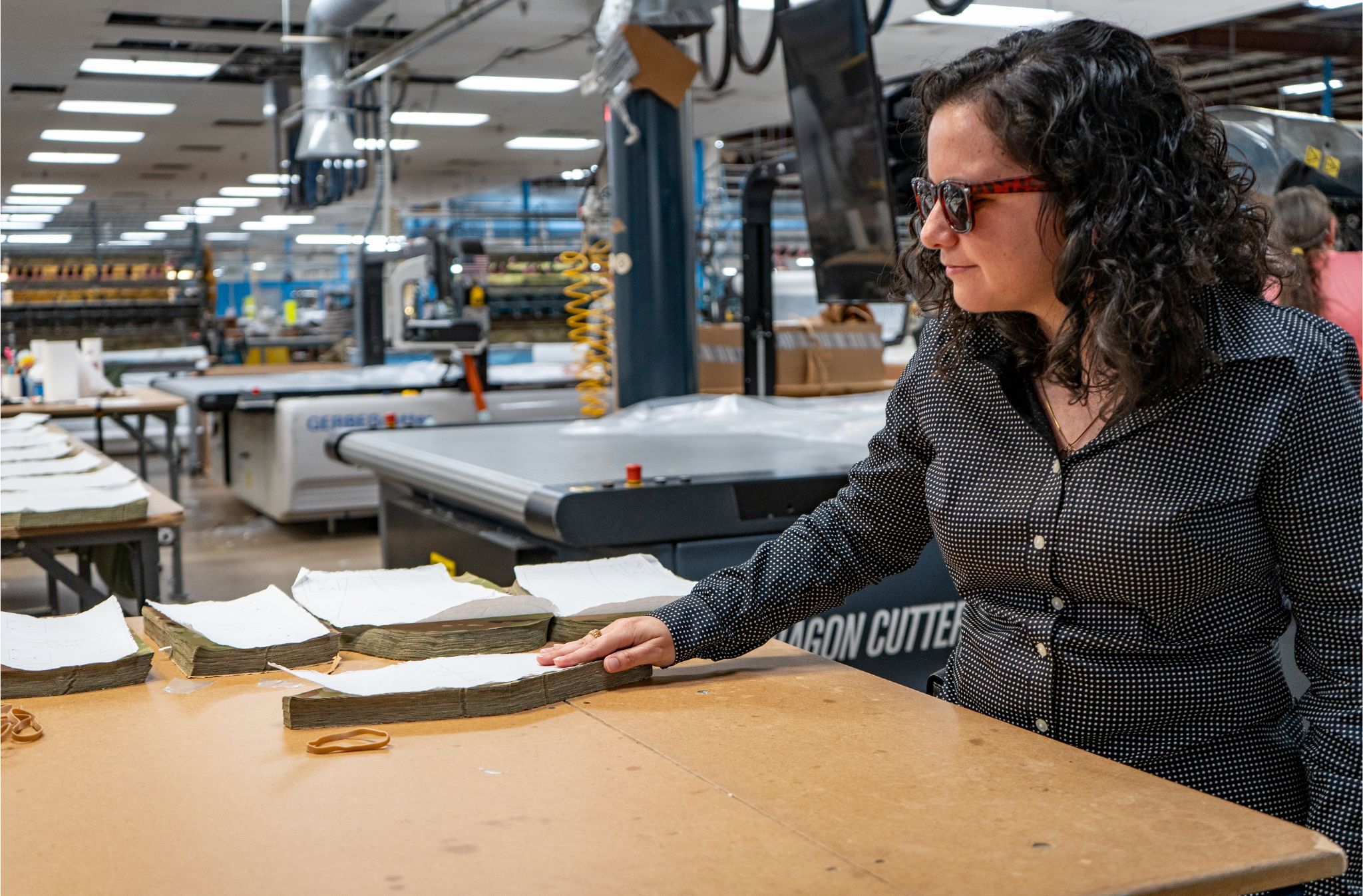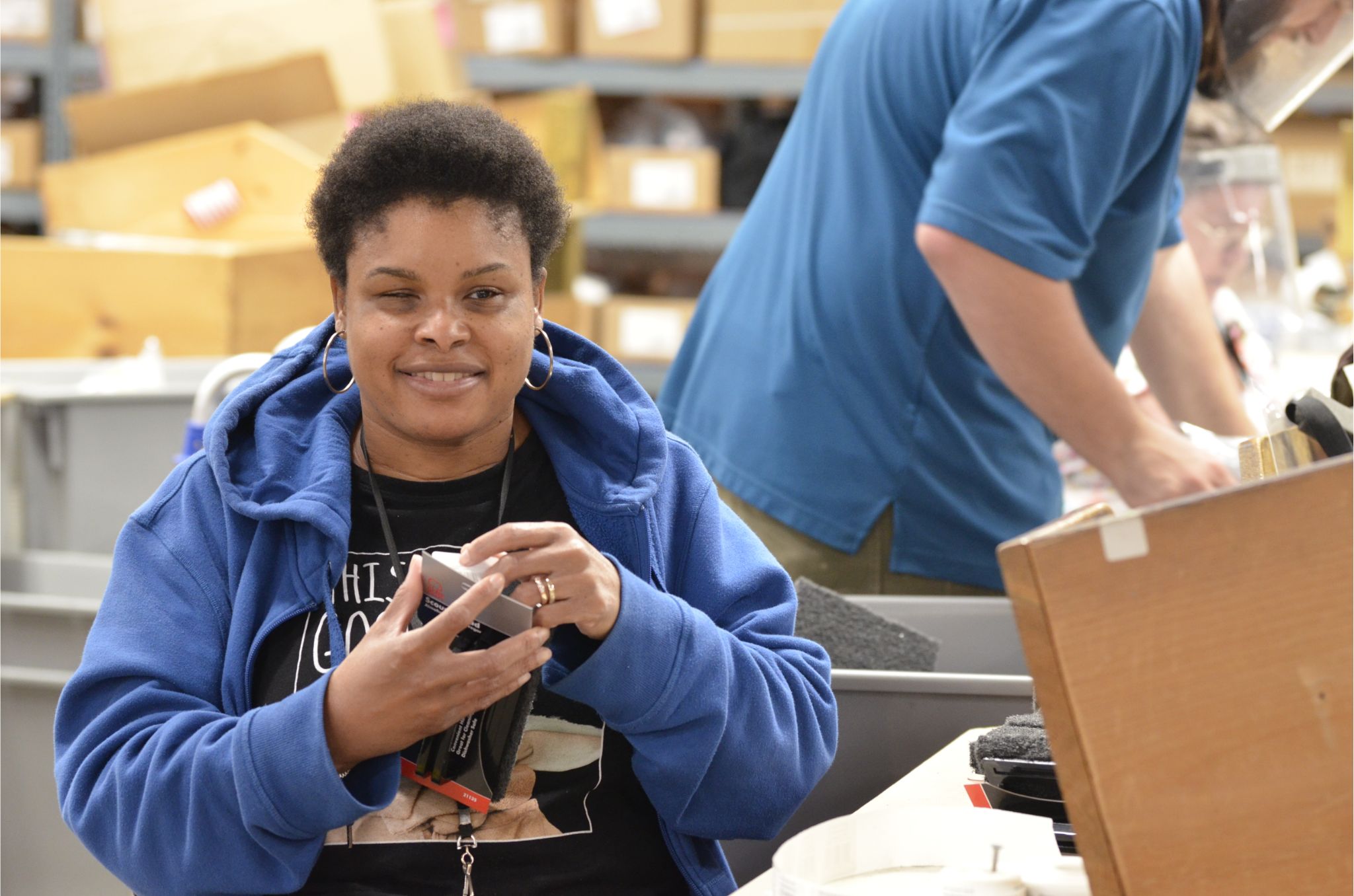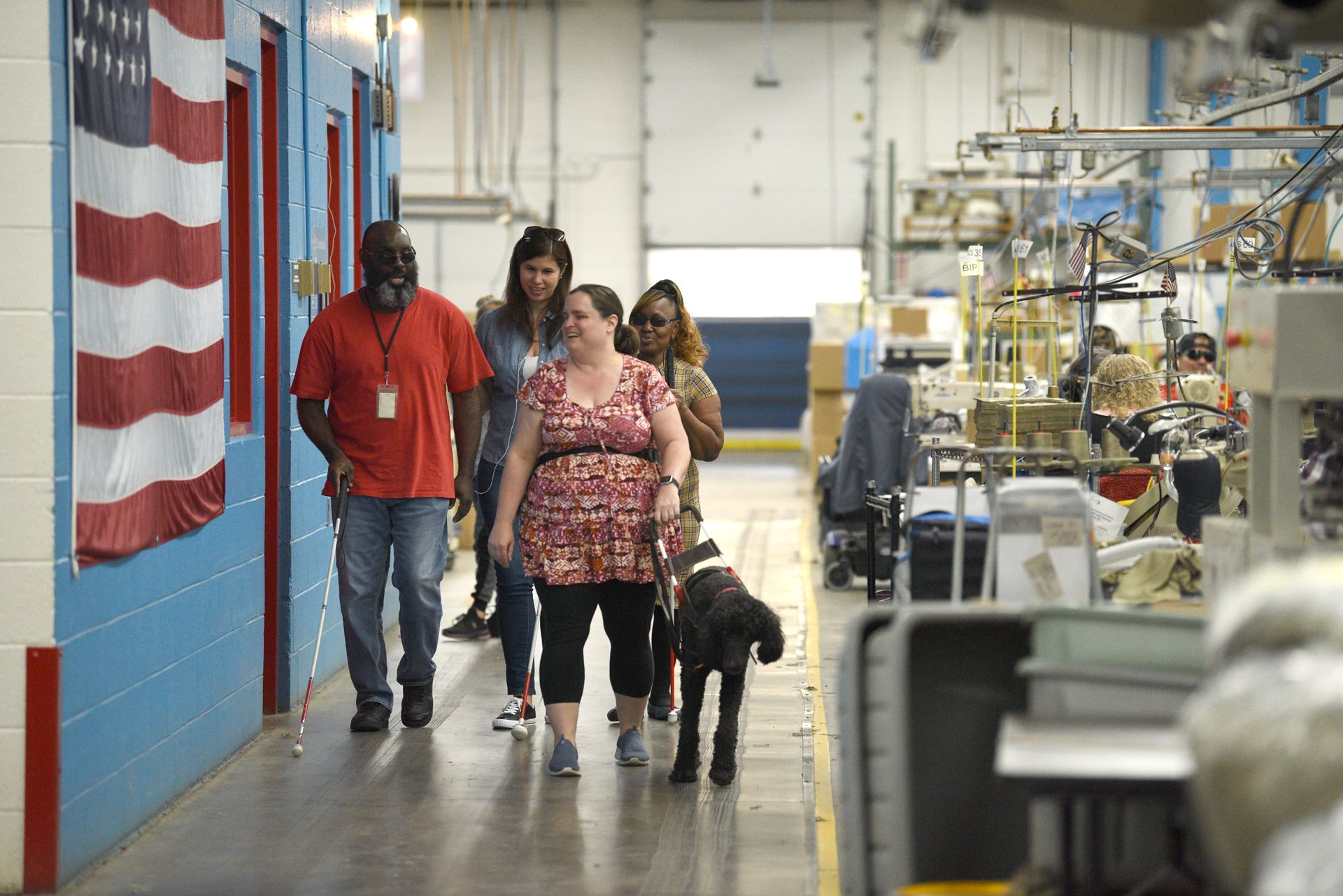Industries for the Blind
Nine Decades of Empowering People Who are Blind
 Husband and wife team Chris and Jackie Perrea work in IFB’s Winston-Salem packaging and assembly group.
Husband and wife team Chris and Jackie Perrea work in IFB’s Winston-Salem packaging and assembly group.
SHARE
Industries for the Blind (IFB Solutions) was founded in 1936 with six vision-impaired employees who manufactured mattresses, caned chairs, and brooms. This was during the time when President Franklin D. Roosevelt was rolling out his New Deal initiatives. “There was a great sense that those with more needed to be proactive in helping those with less. A lot of agencies like Industries for the Blind were founded in the 1930s from an outpouring of support of civic organizations like the Lions Club,” says Seth Anderson, IFB senior director of marketing and development.
Today, IFB Solutions is the largest employer of people who are blind or visually impaired in the U.S. with nearly 300 employees who are blind. From creating simple textiles, IFB Solutions has invested in engineering, training, and product development to expand their partnership with the military and federal government. “We are now able to take on more complex products, even winning military contracts that mean having the resources in place to train employees, both blind and sighted,” Seth says. “We also have a team to make sure that we are meeting the quality specifications and requirements for our customers.”
Dan Kelly came on board as president and CEO in 2022 and, according to Seth, has created a lot of focus. “Ten years ago, it was hard to tell our story because we were so many different things,” Seth says. “Dan has removed a lot of the distractions and simplified our focus to Jobs for People Who are Blind.”
 Alina Ravelo is plant manager at the IFB site in Asheville where she inspects textile manufacturing cut sets.
Alina Ravelo is plant manager at the IFB site in Asheville where she inspects textile manufacturing cut sets.
 Latwana Gilbert works in IFB’s Asheville packaging and assembly group.
Latwana Gilbert works in IFB’s Asheville packaging and assembly group.
 A group of IFB textile manufacturing employees are on their way to a lunch break.
A group of IFB textile manufacturing employees are on their way to a lunch break.
IFB creates jobs in three different areas:
- Packaging and assembly work: This includes making office supplies for the federal government, selling products on Amazon under the Pinnacle Mercantile storefront, and distributing items that go in the military commissary system worldwide. “Jobs in this area are good for those who are new to visual impairment, and this might be their first job, or people who want part-time work, as well as those with multiple disabilities,” Seth says.
- Advanced textiles: IFB manufactures a variety of complicated products. The advanced combat shirt and the fuel hander’s suit are two highly specialized products that require coordination among five teams – recruitment, training, engineering, quality, and operations. “We are creating a garment with exact military specs with input from all these teams. This is competitive and integrative employment where we have people who are blind working side-by-side with people who are sighted,” Seth says.
- Professional services: “IFB has employees across the U.S. performing call center customer service from their homes. A major barrier to a person with any disability, but especially visual, is transportation to and from work. For somebody who lives in rural Idaho, it allows them to be employed, working from home. If they are totally blind, they have their screen reader in one ear and the customer in the other. As far as our quality and performance metrics go, you would never be able to tell that you’re talking to someone on the phone who is blind,” Seth says.
Anastasia Powell has worked at IFB for 20 years and has progressed from sewing machine operator to her current role in communications. “I participated in upward mobility opportunities at IFB and took advantage of training. IFB offers computer training and also braille classes. It’s been a journey with a lot of support along the way.”
 Marvin Pearson is a call center agent in IFB’s professional services group.
Marvin Pearson is a call center agent in IFB’s professional services group.
“We have wrap-around services for our employees, including transportation, medical care, cafeteria services, and a low vision center that is also open to the community,” Seth says. “We believe that all people who are visually impaired have the right to succeed in every area of life. At IFB, we want to ensure that they have all the tools they need to be as independent as possible.”
David Black, senior vice president and commercial banker, became IFB’s banker after making a connection with Jason Moser, IFB’s CFO. “We were looking for a more personal experience with local leadership who knew us,” Seth says. “With our previous banking experience, it did not feel that way at all. As we build on a foundation for the next 90 years, we need a financial partner alongside us who will help us get there. TowneBank has been great – the shared vision is genuine, and the partnership is genuine.”
For more information and to see how you can advance their mission, visit IFBSolutions.org.
The TowneBank Story
Private Banking for Nonprofits
Insights & Perspectives
-
Lansing Building Products—A Business Banking MemberVideosLansing Building Products—A Business Banking Member
-
Hendrix Batting Company—A Business Banking MemberVideosHendrix Batting Company—A Business Banking Member
-
MEB General Contractors—A Business Banking MemberEngineering Construction and DesignMEB General Contractors—A Business Banking Member
-
Timmons Group — A Business Banking MemberEngineering Construction and DesignTimmons Group — A Business Banking Member
